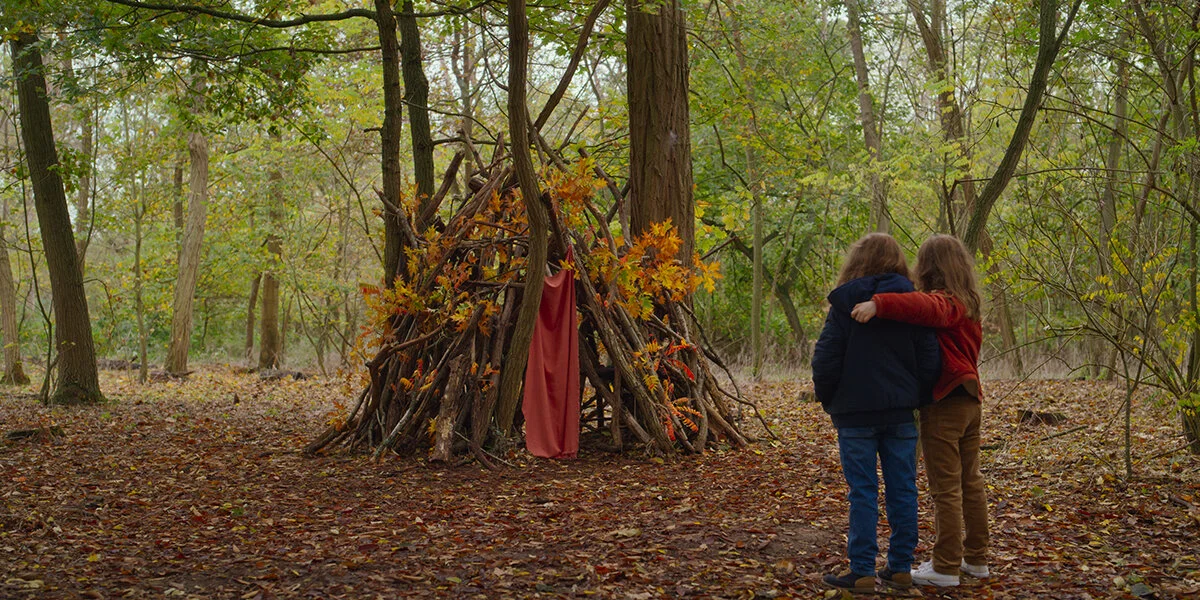Review by Zach Dennis
After giving us what felt like a globe-trotting effort in her last film, Portrait of a Lady on Fire, it was nice to see writer/director Céline Sciamma returning to the mode of her her early films by focusing on a small story about growing up.
Petite Maman (or Lil’ Mama, for those in the know) follows Nelly, who returns to her grandmother’s house in the woods along with her mother and father to clean out the home after the elder family member passed. Naturally bored with the mundanity of cleaning, Nelly takes to exploring in the woods behind her house and comes across a fort (one referenced earlier by her mother as an object of her creation from many years ago). There at the fort is another girl around Nelly’s age, who introduces herself as Marion, her mother’s name.
The skill of Petite Maman is how simply Sciamma brings us into the fairy tale. Sciamma doesn’t expend any unnecessary time providing clarity to the logic of the situation, which feels refreshing nestled against that incessant need in other contemporary movies. Instead, the situation is what it is.
Joséphine and Gabrielle Sanz in ‘Petite Maman’
As the fairy tale unravels, Nelly is able to find closure with her grandmother, who died while living in hospice care, and also gets to learn more about her mother, who seems distant and preoccupied in a lot of moments with her daughter. Her father doesn’t offer much help either, outside of providing the basic necessities and engaging with her when she’s not outside in the woods.
Both Nelly and the younger Marion are played by a pair of twins (Joséphine and Gabrielle Sanz, respectfully), and there’s this familiarity and comfort immediately felt between the two that goes beyond the fact that they are technically playing mother and daughter. As the girls talk more, the conversations become more straightforward and frank. It’s probably more of an attribute of conversations between young children, but each actress approaches it with such seriousness that there’s something hilarious about it.
The quality becomes even more pronounced as the two put on a fake narrative between the two of them, and both actresses approach their characters within the narrative with such un-emotive straightness that you can’t help but find it amusing.
A lot of Petite Maman is like this; it feels so small in contrast to the vast worlds that Sciamma has created recently in Portrait and Girlhood that you might feel slighted by how minor it feels, but I think it also shows a director that has come to better understand her strengths.
Nothing feels half-baked or in need of more time in Petite Maman, instead, it constantly feels measured and genuine, which I feel like Sciamma is finding more success in as she goes deeper into her career. Where early films like Water Lillies and Tomboy have great moments but sometimes fall into rhythms and patterns that don’t go anywhere, Petite Maman feels like a more focused version of both of those. While it may seem slight next to her two most recent offerings, it still displays that Sciamma is a director to follow no matter where she goes.

